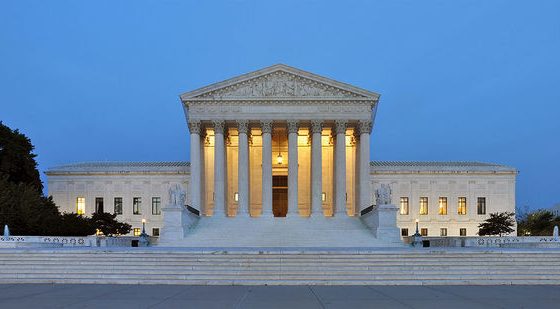The Supreme Court will not allow Congress to access President Trump’s tax returns. For now at least as the case has been remanded to the lower courts.
This is a big win for Trump and for the separation of powers.
In the case of Trump v. Mazars, LLC the court ruled.
“In Mazars, the District Court granted judgment for the House and the D. C. Circuit affirmed, finding that the subpoena issued by the Oversight Committee served a valid legislative purpose because the requested information was relevant to reforming financial disclosure requirements for Presidents and presidential candidates. In Deutsche Bank, the District Court denied a preliminary injunction and the Second Circuit affirmed in substantial part, holding that the Intelligence Committee properly issued its subpoena to Deutsche Bank as part of an investigation into alleged foreign influence in the U. S. political process, which could inform legislation to strengthen national security and combat foreign meddling. The court also concluded that the subpoenas issued by the Financial Services Committee to Deutsche Bank and Capital One were adequately related to potential legislation on money laundering, terrorist financing, and the global movement of illicit funds through the real estate market.
Held: The courts below did not take adequate account of the significant separation of powers concerns implicated by congressional subpoenas for the President’s information. Pp. 7–20.
CNBC noted about the Mazars case:
The congressional cases involved subpoenas issued by Democratic-led committees of the House of Representatives, which sought financial records from the president’s longtime accounting firm Mazars USA as well as his banks, Capital One and Deutsche Bank.
“This case is different,” Roberts wrote in the opinion handed down Thursday. “Here the President’s information is sought not by prosecutors or private parties in connection with a particular judicial proceeding, but by committees of Congress that have set forth broad legislative objectives.”
“Congress and the President—the two political branches established by the Constitution—have an ongoing relationship that the Framers intended to feature both rivalry and reciprocity,” Roberts wrote.
The House Oversight Committee sought out the information in connection with investigations into claims made by the president’s former lawyer Michael Cohen that Trump inflated and deflated his assets to suit his needs.
In the case of Trump v. Vance, the Supreme Court ruled against President Trump.
The Supreme Court has ruled that the Manhattan district attorney can subpoena and can have access to Trump’s tax returns and financial records.
This case was remanded back to the District Court where President Trump will be able to raise further arguments. Essentially keeping the case tied up in court.
Roberts notes, in a footnote, that the “daylight between our opinion” and the Thomas “dissent” is “not as great as that label might suggest.” “We agree that Presidents are neither absolutely immune from state criminal subpoenas nor insulated by a heightened need standard.” Here’s some key language: “We agree that Presidents may challenge specific subpoenas as impeding their Article II functions.” “And although we affirm while Justice Thomas would vacate, we agree that this case will be remanded to the District Court.”
https://trumptrainnews.com/2020/07/09/supreme-court-issues-ruling-on-trumps-tax-returns/



